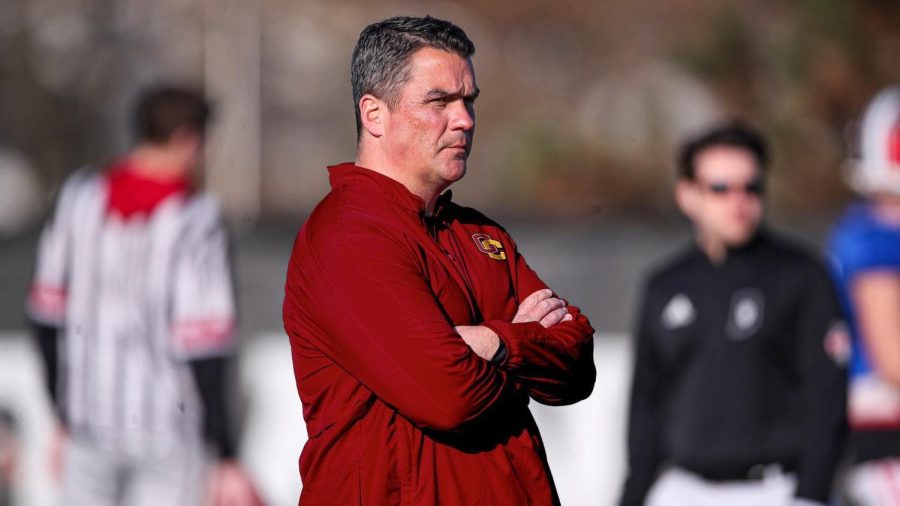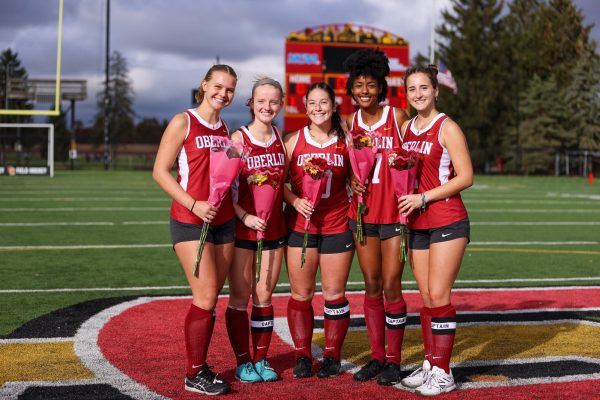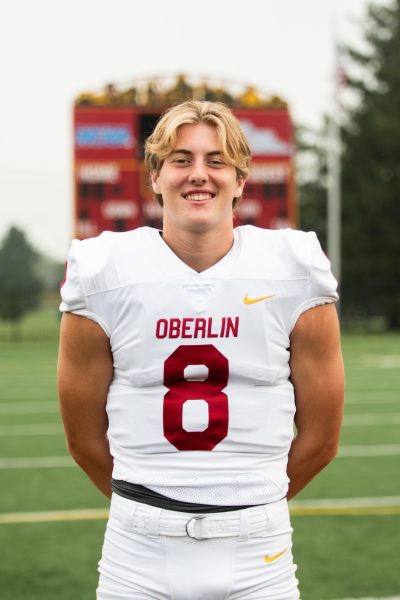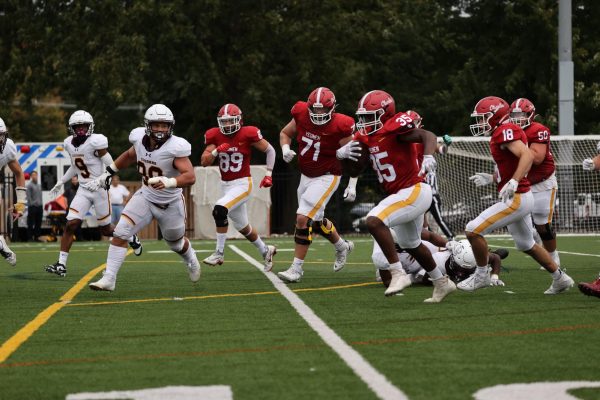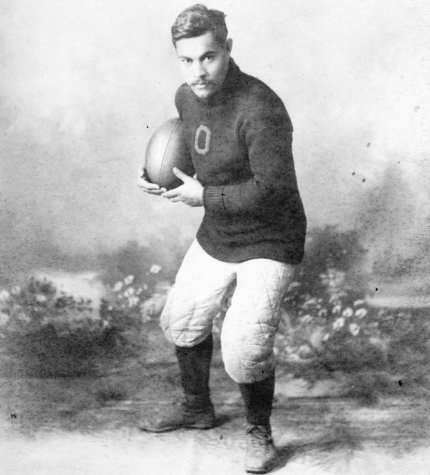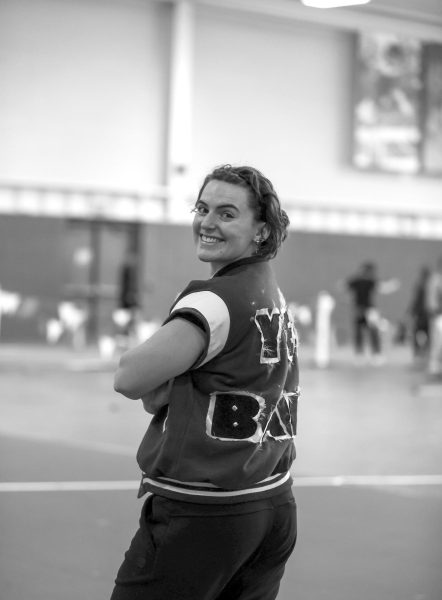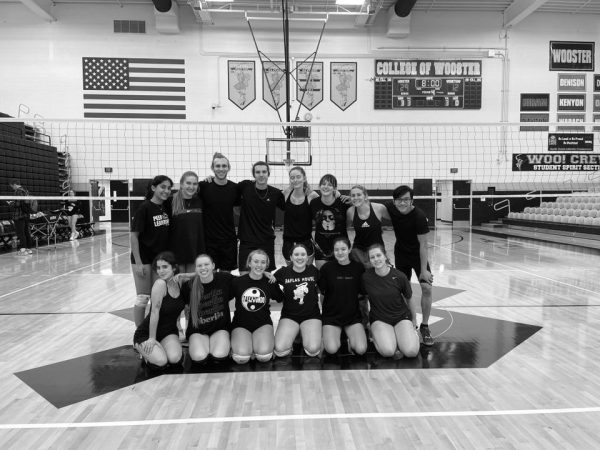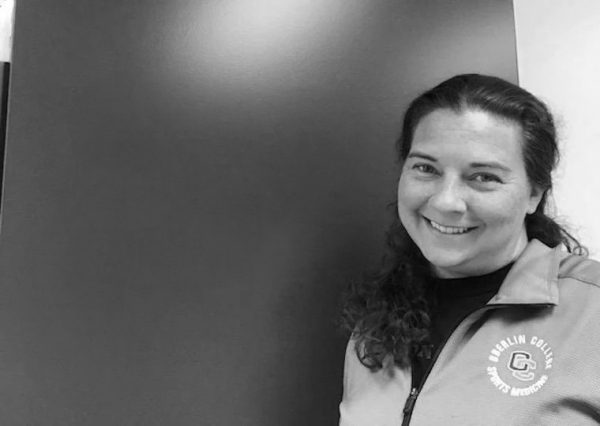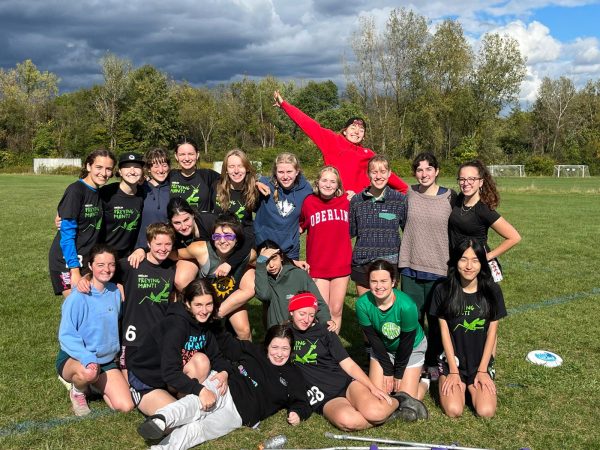In the Locker Room with John Pont, Oberlin Football’s New Head Coach
Photo Courtesy of Indiana Athletics
John Pont was recently hired as the new head coach for Oberlin football.
On Wednesday, Feb. 1., John Pont became the new head coach for Oberlin football, replacing Steve Opgenorth, who coached the Yeomen for two seasons. Pont came from Indiana University, Bloomington, as an offensive analyst and performance assistant and also worked in various positions at the University of Chicago and Case Western Reserve University. The Review sat down with him on his first day to discuss his vision for the football program.
This interview has been edited for length and clarity.
What was your coaching role before you took the job at Oberlin?
I’ve coached football for about 15 years and most recently was at Indiana University Bloomington as an athletic performance assistant. I helped out on the offensive side of football as an analyst breaking down film, studying the next opponent, and helping the offensive coordinator and offensive staff develop a game plan. In the weight room, I was just an extra set of eyes, hands, and feet, and I helped out any way I could. I made sure that the student athletes were staying safe while lifting and using proper technique to make sure they didn’t get injured.
What were the most important things you picked up from your role with Indiana’s football program?
I think the most important thing I learned was to make the most out of the time you have with the kids. Being in the weight room, I had very short periods of time that I was able to be with the student athletes each session because they had many other responsibilities. In the weight room, you have a limited scope, but you still want to build the student athletes up physically, emotionally, and mentally while you’re in those spaces. That helped me become a better coach regardless of the division.
What made you decide to come to Oberlin and return to Division III athletics?
I actually interviewed at Oberlin a few years ago when the spot opened up after Jay Anderson left the school. I loved the interview, felt like it went really well, and was ready to come and be the head coach here, but that’s not how it worked out. I’ve learned a lot over these last couple years that has helped me become a better coach and helped me professionally. When I had the opportunity to become the head coach, knowing the College itself, knowing what it’s about, knowing the people that are here — like Natalie Winkelfoos and Mike Mancini — and knowing President Ambar’s vision for the program, it was a no-brainer. Athletics that value academics is something that’s near and dear to my heart. I believe in this model and that this program can be really successful, and I want to help lead it to another level.
What is your main philosophy for coaching and leadership?
Building relationships on the personal level and getting to know the individual is the most important thing. Especially in sports, the players often don’t care how much you know until they know how much you care about them. Players will play harder and learn more because they know that you care about them as a person and more than just as a football player. I also believe that coaching is education. It’s about teaching, and we do that by getting to know the kids — what their goals are, what they want to get out of the experience — and tailoring the experience to those goals.
How do you envision football contributing to the Oberlin community?
I hope that this program will continue to bring in people who want to become world-changers. I think Oberlin College, by its very nature, attracts people from all over the world that want to help make the world a better place. I think our football program should be in line with that vision and identity.
Oberlin had a rough season this year with some close games. What are you working to improve on for the 2023 season?
It’s again just about getting to know the student athletes — who they are, what they do really well — and putting them in position to do those things. Basing our schemes around who our student athletes are and not necessarily trying to fit them into a playbook or a set of rules will help them feel as comfortable as possible. Hopefully, through doing those things, they’ll have more fun. When we have fun, know what we’re doing, and use our talents to the best of our abilities, I think we can be very successful on the field. Thankfully I’m certified in strength and conditioning, so I can be in the weight room with our team throughout the off season, help them develop, and get to know them.
Your grandfather, John Pont, has been a significant influence in your life. How has he and your family helped you in your journey to becoming a head coach?
My grandfather has always been one of my greatest role models in life. When he passed away, the line of people that came to visit and pay their respects went on for hours. So many of the people that I got a chance to talk to spoke to how great of a human he was and how great of an impact he had on their lives, far beyond the Xs and Os of football. As a young kid, I wanted to be a head coach because Grandpa was a head coach, and seeing the impact that he was able to have on people as a coach helped frame my mindset about it.
My grandfather’s brother, Rich Pont, was an assistant coach at Yale University for years and years. My parents both ended up coaching my high school as well. My dad coached football, field hockey, and women’s lacrosse, and my mom coached women’s lacrosse. They all have influenced me and always made me want to do the same for others.


